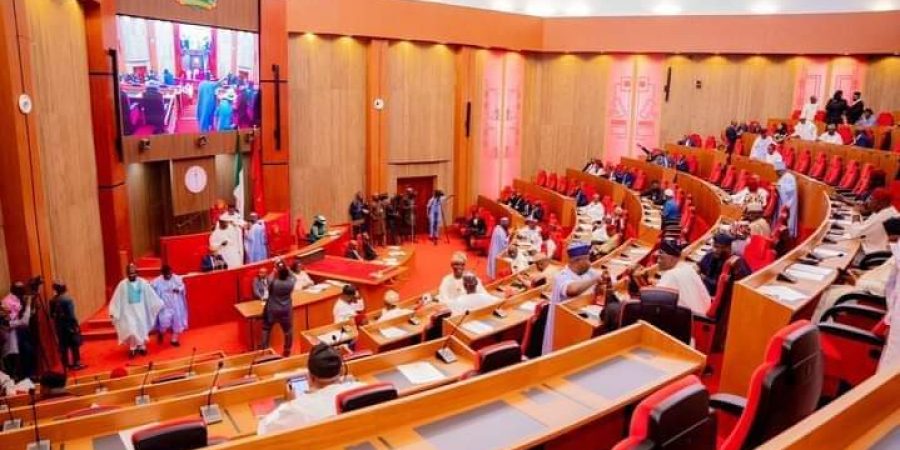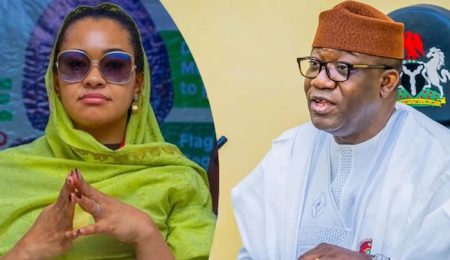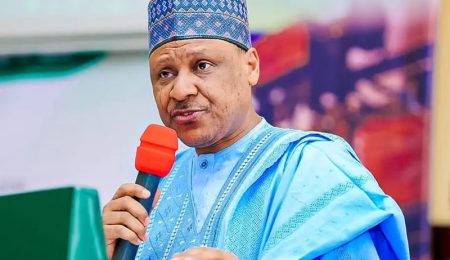The Senate on Tuesday approved a fresh extension of the capital component of the 2024 national budget, moving the implementation deadline from June 30, 2025, to December 31, 2025.
The extension, the second of its kind, would provide the federal government additional time to execute ongoing infrastructure projects under the N13.19 trillion capital expenditure component of the N34 trillion 2024 budget.
The resolution followed the consideration and accelerated passage of a bill to amend the 2024 Appropriation Act during plenary.
The bill scaled through first, second, and third readings in a single legislative sitting.
Leading the debate, Chairman of the Senate Committee on Appropriation, Senator Solomon Adeola (APC, Ogun West), justified the extension.
He said it was necessary to prevent project abandonment and ensure continued funding for critical infrastructure across the country.
“Given the limited fiscal space and challenges in fund disbursement, the extension is essential to guarantee the continuity of key national projects and safeguard resources already committed,” he stated.
The original 2024 Appropriation Act earmarked N9.995 trillion for capital expenditure, N8.768 trillion for recurrent spending, and N1.742 trillion for statutory transfers out of an aggregate N28.77 trillion.
President Bola Tinubu subsequently forwarded a N6.2 trillion supplementary appropriation bill, which sought to boost capital spending by an additional N3.2 trillion and recurrent expenditure by N3 trillion.
The capital budget was initially extended in late 2024 from December 31, 2024, to June 30, 2025.
The first extension followed a presidential request aimed at optimising the implementation of ongoing projects.
However, with the June deadline now imminent and many projects still far from completion, lawmakers deemed another extension was unavoidable. This development implies that Nigeria will now operate two parallel budgets, which are the extended capital budget for 2024 and the already approved 2025 budget.
This is coming barely four months before Tinubu is expected to present the 2026 spending proposal to the National Assembly.
The Senate’s decision also reflected broader concerns among lawmakers over persistent delays in fund releases and slow execution of capital projects.
Senator Yahaya Abdullahi criticised the centralised payment system controlled by the Office of the Accountant-General of the Federation, describing it as a major bottleneck to budget execution.
“Contractors have completed their work but remain unpaid. Ministries are not receiving funds. This undermines the credibility of the government,” Abdullahi warned.
He urged the Senate leadership to engage directly with the President to resolve the crisis.
Senator Abdul Ningi (PDP, Bauchi Central) backed the extension but demanded a thorough review of systemic failures hindering implementation.
“We can’t keep extending without accountability. Let the Appropriations Committee return in two weeks with a full report on the issues,” he said.
Minority Leader, Senator Abba Moro (PDP, Benue South), expressed concern over the waning public confidence in the budget process.
“Even contractors with the capacity to pre-fund projects are reluctant. The opaque and delayed payment system is hurting development,” he observed.
Senator Seriake Dickson (PDP, Bayelsa West) echoed calls for an urgent probe, decrying the poor performance of the capital budget, especially in contrast to the timely disbursement of recurrent allocations.
“The capital budget, which delivers real dividends to citizens, remains unimplemented, while recurrent spending is fully paid.
There’s too much focus on politics ahead of 2027, and governance is taking a backseat,” Dickson lamented.
The Senate is expected to monitor budget performance closely in the coming months, even as pressure mounts on the Executive to improve transparency, accelerate project delivery, and rebuild public trust in Nigeria’s fiscal governance framework.
Meanwhile, the Network for the Actualisation of Social Growth and Viable Development (NEFGAD), a public procurement and fiscal responsibility advocacy group in Nigeria, has criticised the National Assembly over what it described as a dangerous trend of encouraging fiscal indiscipline through the repeated extension of national budgets.
In a statement in Abuja, on Tuesday, the Country Head of NEFGAD, Mr. Akingunola Omoniyi, expressed concern over the National Assembly’s consideration of another bill seeking to extend the implementation of the 2024 Appropriation Act.
NEFGAD argued that a further extension undermines the constitutional structure of public finance management in Nigeria.
The statement read: “The National Assembly’s oversight responsibility on public finance is being badly compromised. National budgets, by design and as enshrined in the Constitution, are time-bound instruments. Their nomenclature — ‘2024 Budget’, for instance — is not merely semantic. It reflects a constitutionally defined fiscal year, which ends on December 31 of the given appropriation year.”
NEFGAD further noted that this constitutional framework was not arbitrary, but a deliberate measure by the drafters of the constitution to promote transparency, accountability, and fiscal discipline.
NEFGAD further said: “A budget is a financial estimate prepared by the executive with the presumption that adequate needs assessments and due diligence have been conducted. If implementation fails, it is the National Assembly’s duty to demand accountability, not to extend timelines endlessly.”
The group emphasised that the existence of the 2025 Appropriation Act renders any prolonged implementation of the 2024 budget irregular, unconstitutional, and misleading.
It called on the National Assembly to either discontinue the extension or revise the nomenclature accordingly, as continuing to refer to it as the “2024 Appropriation Act” beyond its legal expiration date of December 31, 2024, is both deceptive and unlawful.
NEFGAD added that its position was without prejudice to the constitutional power of the National Assembly to amend laws of the federation, but argued that such power in itself was not without limit which must be exercised in line with national interests, constitutional provisions and principles, urging the National Assembly to recommit to its constitutional mandate and uphold the principles of fiscal responsibility and institutional discipline, which are critical to Nigeria’s economic stability and democratic accountability.
Michael Olugbode and Sunday Aborisade
Follow us on:



